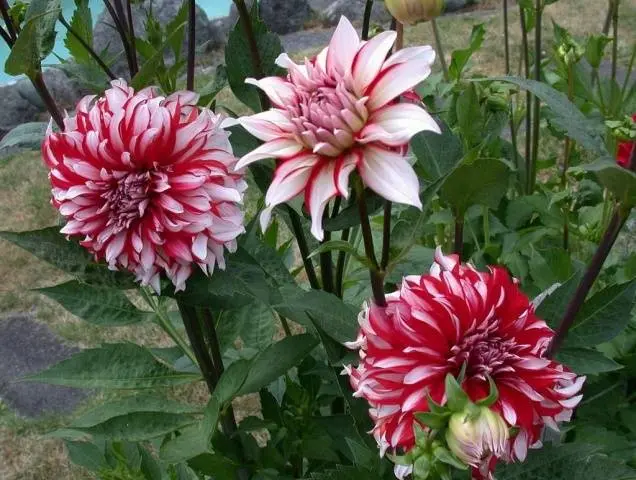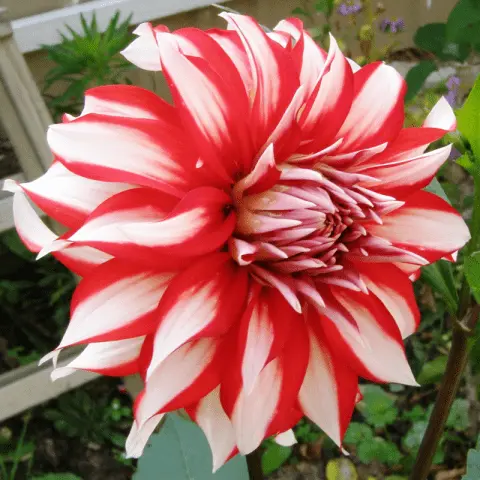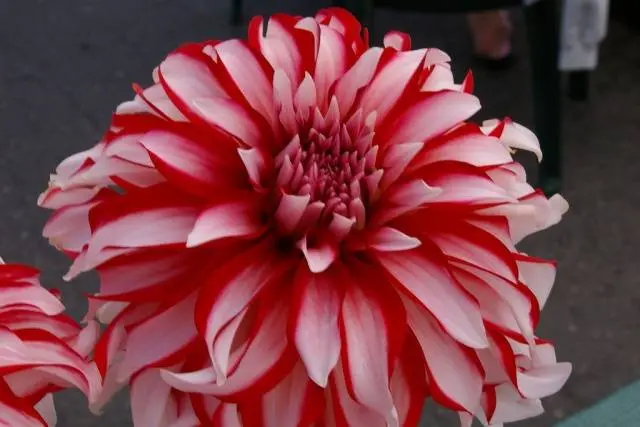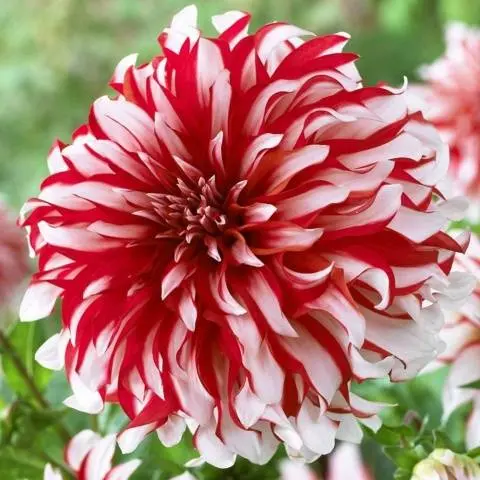Undeservedly forgotten dahlias are becoming fashionable again. Among the variety of shapes, colors and shades, it is easy to choose the right variety.

Description
The variety is suitable for growing as a single plant, group plantings. Dahlias of this variety are distinguished by:
- Abundant flowering;
- bush stability;
- Resistance to many fungal infections;
- High decorative effect;
- Universal use of colors.
The tubers are dug up for the winter and stored in a dark room with a temperature of about 7 degrees Celsius. If there is no such room, the lower shelf of the refrigerator is suitable for storing tubers.
Characterization
Variety “Santa Claus” belongs to the class of decorative dahlias. The rhizome is perennial, the aerial part is annual.

The flower is double, red, with a white-pink border. The size of the flower in favorable growing conditions reaches 15-18 cm.
The flower petals of this variety are flat, wide, wavy, slightly pointed at the ends.
Bush up to 100 cm high, sprawling, well leafy. The leaves are pinnate, dark green, large.
Care
To grow Santa Claus dahlias, you need to choose a well-lit area, closed from cold winds. Before planting tubers, you need to make a complex of fertilizers and humus, at least a liter per bush. In acidic soil, before planting tubers, add lime or ash to reduce acidity.
Tubers are planted in the spring, when the soil warms up to 15-18 degrees. It is advisable to prepare a shelter for flowers in advance in case of return frosts.

Dahlia stems are fragile, strong winds can break them, so they are often grown in a special frame made of large-mesh metal mesh. The grid is fixed on supports dug into the ground, the flowers are brought out into the cells at a level of 50 cm from the ground. The diameter of the frame is about 40-50 cm. The tuber is planted in the middle of the frame.
It is necessary to treat the cut of the flower with a disinfectant. It is advisable to carry out the procedure in the morning, in dry sunny weather.
During the growing season, complex fertilizers are applied, and chelate forms are often used for spraying. During flowering, plants need higher doses of magnesium, phosphorus and potassium.
In cold, rainy summers, flowers can get sick. To reduce the risk of fungal infections, the lower leaves are removed, the flowers are sprayed with fungicides.

Watering flowers is carried out no more than once a week, dahlias do not like high humidity. It is very convenient to use drip irrigation.
Having allocated a small area in the flower bed for these beautiful flowers, most flower growers continue to grow dahlias and further, gradually increasing the number of varieties, create their own mini-collections.









